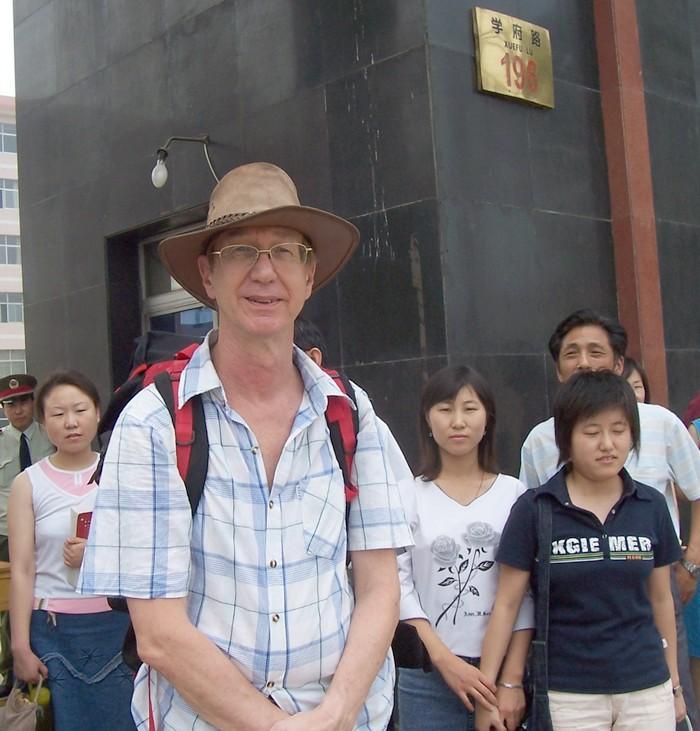| How long will the oil price last? | |
|---|---|
| Sep 24, 2007 23:22 | |
 | In recent days, the oil price in international market keeps soaring. Each bucket reaches 83 US dollars. It is estimated that the oil price might exceed 90 US dollars before the end of this year. Confronted with this situation, the NDRC has ordered before that oil price in domestic market should be kept stable. Why? Because the CPI increased 6.5% in August. To resist the huge risk of inflation, China chooses to stabilize the oil price. This act went against the 'market law'. However, they have to do this. An analyst said that the oil price had been raised if the CPI was normal. In order to stabilize the oil price, the two giant---Sinopec and CNPC need to buy the oil at high price in the international market and then sell it at lower price in domestic market. Without government's compensation, they will suffer a huge loss. To raise the oil price or not is still question. Chinese government has to weith its pros and cons. But how long can this policy maintain? |
| Sep 25, 2007 01:42 | |
 | A difficult one! The price of oil now might be just a spike so a short term support by the government is not such a problem. Howver even if it falls it is unlikely to fall tas much as it rose. the reality is that the price of oil will continue to rise until we really start producing aalternatives. So in the longer term China needs to remove its dependency on oil, by encouraging the use of renewable energgy sources, and secondly by reducing consumption. The most obvious way of reducing consumption is to put much higher taxes on the 'gas guzzlers' that the Chinese new rich seem to love so much, and put a whopping tax on fuel so as to encourage smaller vehicles. It is absurd that in a socialist society that a subsidy to maintain the price of petrol at the pumps will benefit this rich group. While it also interferes with the free market mechanism it might be preferable to allow the pump price to rise but then subsidise the public transport and truck operators. As part of the alternative fuels approach, the governmnt needs to regulate against city govrnments which have banned electric bicycles. This is a cheap means of trnsport for the masses which is far less environmntaly that gas guzzlers. But the gas guzzlers of the rich can continue to use valuable oil resources and damage the environment. This is not 'scientfic development'!! |
| Sep 26, 2007 03:14 | |
 | The root for the surging price of oil is that there are less and less oil on earth to exploit. Since the supply is limited and the demand is too high, the oil price is surely to skyrocket (though it is reported that the oil price has dropped to about 80 dollars). Paul is right. We need to produce other alternatives and encourage the renewable energy sources. It is absurd that in a socialist society that a subsidy to maintain the price of petrol at the pumps will benefit this rich group. Yes, exactly. Except those factories, those rich people consume the large part of the oil. The subsidy from the government is almost spent on them. Perhaps it is biased but it is true. |
| Sep 26, 2007 17:05 | |
 | Quote: "Except those factories, those rich people consume the large part of the oil. The subsidy from the government is almost spent on them." Well to stop this I guess we shall stop making the appology of the mass consumption society... Once someone reaches the top of the Economic sphere, he has to appear rich, espacially in China where the concept of face is really important. You need to show so you buy what is expensive, you do not pay attention to the consumption of your vehicule (Hummers, Limo, ATVs...). But Westerners are favourising this way of life, this is the basic principle of marketing: the differentiation of industrial products. You are what you wear, what you drive, what you smell. This is the counterpart of the Economic development through capitalism: it puts the individuals forward with his needs (prefering to use his personal car rather than buses or subway). In some countries we even noticed that the only persons using public transports were people who couldnt afford buying a car, or whose driving lincence has been taken. The issue that would raise from an increase of the oil's price would be a general increase on inflation since we use oil everywhere: to make all the plastic, as fuel to produce electricity but also as a combustible creating energy for transports but not only... We know that to replace some kind of plastics we can use corn (pencils for instance), there are many ways to produce electricity but none is as powerful as nuclear (but it is also polluting and for a really long time) and as a combustible the hydrogen engine was invented in the 1950s but the patent was immediatly bought by oil companies to stifle competition. Now they are saying that they will do everything to restructure their activities but the keyword to understand this behaviour is just profit (same scenario for LCD screens and cathode-ray tube: first we sell off the stocks then we produce what we discovered 30 years ago). In the case of China, as the inflation rate as never been so high, I don t think they ll fully implement this kind of policy. Environement is a major issue, but for a State the most important is the economic viability of the measure. |
| Sep 26, 2007 17:05 | |
 | Quote: "It is absurd that in a socialist society that a subsidy to maintain the price of petrol at the pumps will benefit this rich group. While it also interferes with the free market mechanism it might be preferable to allow the pump price to rise but then subsidise the public transport and truck operators." I do think it is absurd, but the problem is that now the Chinese governement is investing a lot of money in profitable companies and doesn t especially subsidies this kind of project (the oil industry in China is mostly a public industry). In the speaches, Environement is always considered as a major issue, but in the facts Economy prevails. Let's say 'scientfic development' exists but in thoughts only: that's a pity but unfortunately very few countries are already seriously looking for a way to solve this issue. Indeed many agencies declared that we just extracted between a third and half of the oil on Earth (according to USGS and ASPO). I guess the Chinese government will keep the prices artificially low, since most of the oil goes to industries which pushes the Chinese Economy forward... About the Gas Guzzlers as you call them, they are bound to consume more and more since the automobile sector wont be substituted so quickly... For now about 50% of the oil consumption is due to transportation but it will increase to 60% in 2030 (time when we ll extract even more oil). Political will is important, but a worldwide awareness and conscience about the future of our planet would be better. |
| Sep 27, 2007 03:50 | |
 | Quote: the oil industry in China is mostly a public industry. Well, ERENCIUS. Perhaps, you do not understand the situation in China. In China, Sinopec and CNPC are the two giants that almost control China's oil market. In other words, we may say that they monopolize the market. Other private oil companies can not compete with those two giants. This is not good for the survival of those private oil companies. |
| Sep 27, 2007 05:52 | |
 | Quote: the oil industry in China is mostly a public industry. What's wrong about it? These 2 companies are monopolizing the sector and are public companies? where is the problem? the State do control the prices. |
| Oct 8, 2007 02:32 | |
 | E, I did not explain it clearly. These two companies are monopolizing the sector and are public companies. That is right. But sometimes, they are not good for the public. Because of their monopoly of the oil sector, other private companies can not compete fairly with them and some even go bankrupt. That is why I say that this is not good for those private companies' survival. |
| Oct 11, 2007 15:49 | |
 | Yes in this case it is true of course. I just said this industry sector shall be privatized. ;) |
Post a Reply to: How long will the oil price last?









 Copyright © 1998-2026 All rights reserved.
Copyright © 1998-2026 All rights reserved.